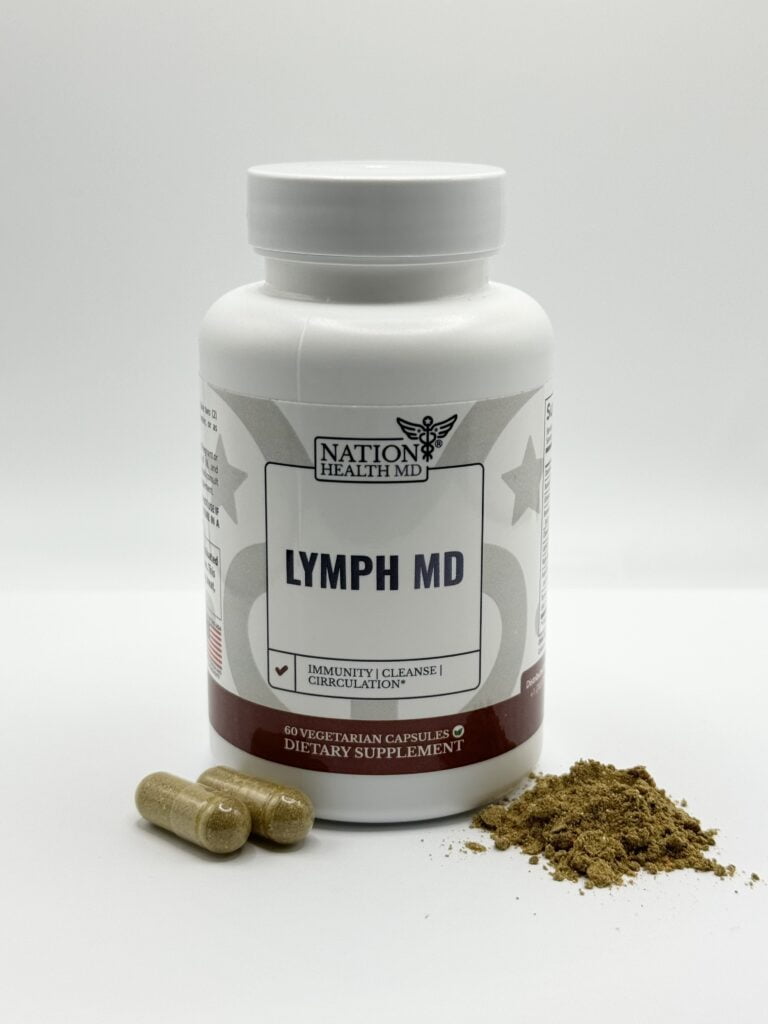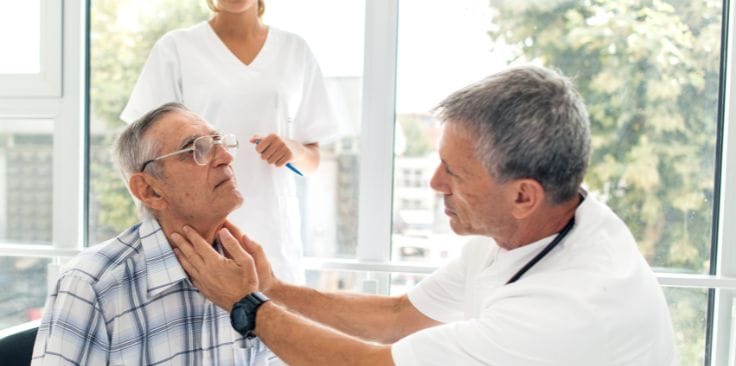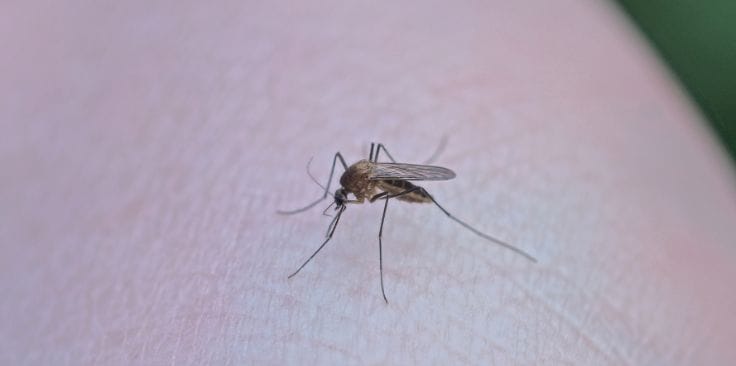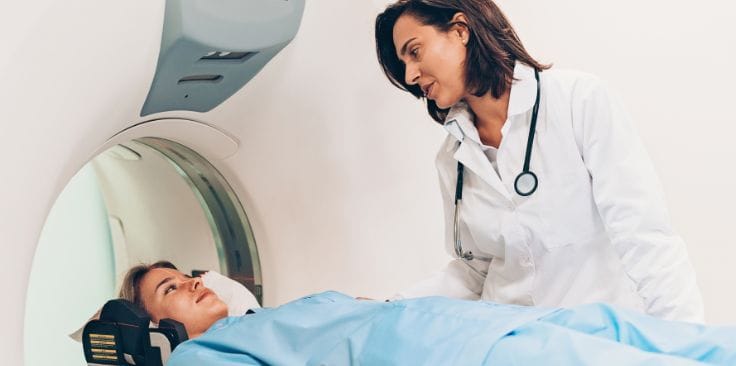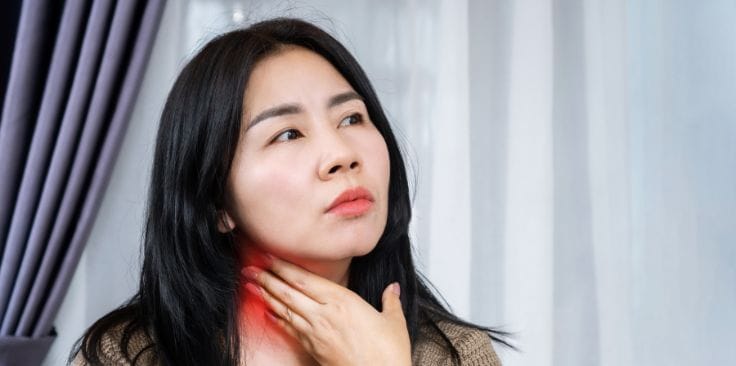Can Allergies Cause Swollen Lymph Nodes?
Medically reviewed by our experts


Can allergies cause swollen lymph nodes? While most people associate swollen lymph nodes with infections, these small but important parts of your immune system can also respond to allergic reactions. Understanding this connection helps explain why you might experience tender spots along your neck or under your arms during allergy season. In this guide, we’ll explore this connection and help you understand when these changes might need attention.
Key Article Findings
- Allergies can cause lymph nodes to swell as part of your body’s natural immune response
- Allergy-related swelling is typically mild, temporary, and feels soft to touch
- If swelling persists beyond two weeks or includes other symptoms, seek professional guidance
What Are Swollen Lymph Nodes?
Your body contains hundreds of lymph nodes – small, bean-shaped structures that work as natural filters throughout your immune system. These tiny but mighty centers trap and filter out potentially harmful substances, including bacteria, viruses, and other unwanted materials from your body.
When your lymph nodes detect these substances, they can become larger and more noticeable – a condition commonly known as swollen lymph nodes. While most often associated with fighting off infections, these nodes can also become swollen in response to allergic reactions. You might notice tender spots about the size of a pea or grape, particularly in areas like your neck, under your chin, in your armpits, or behind your ears.
How Can Allergies Cause Swollen Lymph Nodes?
Can allergies cause swollen lymph nodes? Yes – and the process begins when your body encounters substances it considers potential threats, such as pollen, dust, or pet dander. Your immune system responds by releasing chemicals, including histamine, which triggers various reactions throughout your body.
During this response, your lymph nodes may become temporarily enlarged as they work harder to filter these substances and support your immune system’s activity. This swelling typically occurs in nodes closest to where the allergen enters your body – for example, nodes in your neck might swell when dealing with airborne allergies.
It’s important to understand that lymph node swelling from allergies tends to be mild and temporary, unlike the more pronounced swelling that often accompanies infections. You might notice slight tenderness in areas like your neck or under your arms during allergy season, but this natural response usually subsides as your body processes the allergens and your immune response returns to normal.
Common Symptoms of Allergies and Swollen Lymph Nodes
When experiencing allergy-related lymph node swelling, you may notice several symptoms occurring together. Common signs include:
- Typical allergy symptoms such as sneezing fits, watery or itchy eyes, persistent runny nose, and nasal congestion that may last throughout allergy season
- Swollen lymph nodes that feel soft and slightly tender when touched, most commonly appearing in your neck area, under your chin, or in your armpits
- Affected areas that might feel warm to the touch and appear as small, rounded swellings ranging from pea-sized to grape-sized lumps under the skin
If you wonder how to improve your lymphatic system during allergy seasons, staying hydrated and maintaining regular physical activity can help support your body’s natural processes. While the combination of allergy symptoms and swollen lymph nodes can feel uncomfortable, understanding these normal responses can help you monitor changes in your body more effectively.
When Should You See a Professional?
While swollen lymph nodes from allergies typically improve on their own, certain situations warrant seeking medical attention. Contact a healthcare professional if you experience:
- Lymph node swelling that persists for more than two weeks or continues to increase in size
- Nodes that feel hard, fixed in place, or are larger than the size of a regular grape
- Unexplained fever, night sweats, or unexpected weight loss accompanying the swelling
- Difficulty breathing, swallowing, or persistent hoarseness
- Swelling in multiple areas of your body simultaneously
Conclusion
So, can allergies cause swollen lymph nodes? Yes – and it’s a normal immune response that typically resolves on its own. While mild swelling during allergy season usually isn’t cause for concern, staying aware of changes in your body and seeking professional guidance when symptoms persist helps ensure your well-being. Remember, being proactive about your health puts you in the best position to maintain your quality of life.
Yes, seasonal allergies can cause lymph nodes to swell, particularly in areas near where allergens enter your body. This happens when your immune system responds to allergens like pollen, triggering a natural inflammatory response.
Lymph nodes can swell due to several factors besides illness, including allergies, stress, or physical activity. The swelling indicates your immune system is active, even when you’re not fighting an infection.
Lymph node swelling typically lasts 5-10 days when caused by allergies or minor issues. If swelling persists beyond two weeks or is accompanied by other symptoms, it’s advisable to seek professional medical guidance.
Martin, L. (2024, March 18). What are lymph nodes?
Swollen lymph nodes – Symptoms & causes – Mayo Clinic. (2024). Mayo Clinic.
Fowler, P. (2022, August 14). What are histamines? WebMD.
Professional, C. C. M. (2024). Lymph nodes. Cleveland Clinic.
Healthdirect Australia. (n.d.). Swollen lymph nodes (swollen glands). Causes, Symptoms and Treatment | Healthdirect.
Allergies – Symptoms and causes. (n.d.). Mayo Clinic.
Alexander, H. (2020). Exercise and the lymphatic system. MD Anderson Cancer Center.
Popular Articles
Advertisement. This site offers health, wellness, fitness and nutritional information and is designed for educational purposes only. You should not rely on this information as a substitute for, nor does it replace, professional medical advice, diagnosis, or treatment. If you have any concerns or questions about your health, you should always consult with a physician or other health-care professional. Do not disregard, avoid or delay obtaining medical or health related advice from your health-care professional because of something you may have read on this site. The use of any information provided on this site is solely at your own risk.
